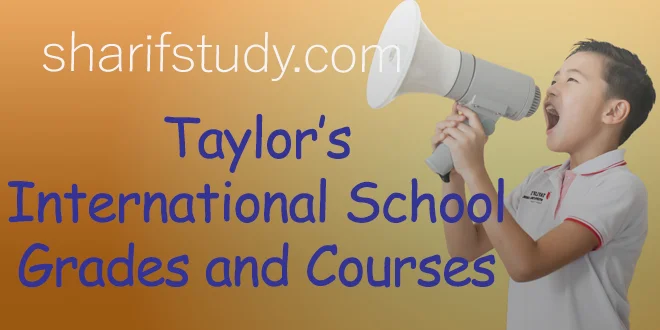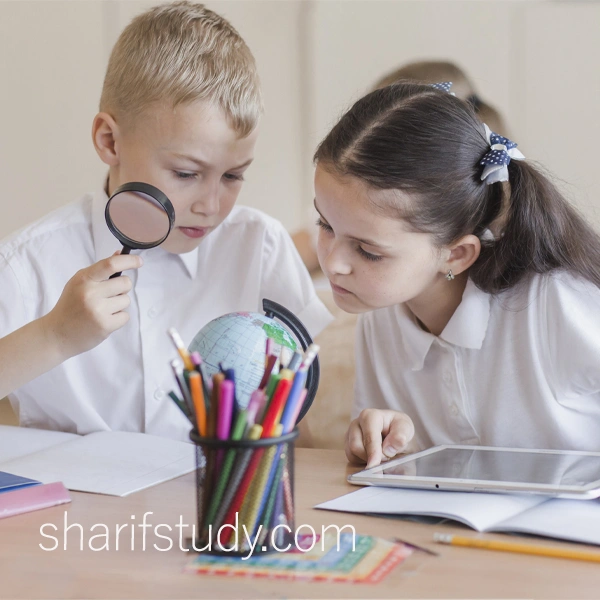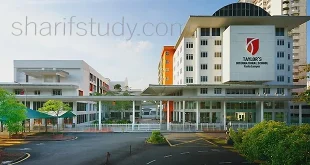Taylor’s International School Grades and courses are like steps in school that children go up as they get older and learn more. Courses are the different levels they learn at each step.
Taylor’s International School has many steps or grades and lots of things or courses to learn. In this guide, we will tell you more about these grades and courses. This will help you know what students learn at Taylor’s International School.
Early Years
The Early Years International Curriculum is available at Taylor’s International School. This is the foundational material for the International Elementary Curriculum (IPC), which is available in their primary school and so guarantees a continuous flow of learning.
The IEYC is based on the most recent research conducted globally regarding the best methods for early childhood education. They also introduce young learners to English, Bahasa Malaysia, and Mandarin through engaging activities led by Early Childhood Education-trained teachers.
| Phase A | Phase B |
| Nursery (3 – 4 Years Old) | Reception ( 4 – 5 Years Old) |
There are four Learning Strands in the IEYC. Each IEYC learning unit is thoughtfully created around a key subject, holistically connecting all four Learning Strands to engaging activities that may be customized to fit the individual learning needs of each child.
The Learning Strands outline the experiences and lessons that kids will get from the IEYC learning units.
Primary
Primary school covers Years 1 and 2 of Key Stage 1 and Key Stage 2. They base our Primary School curriculum on the National Curriculum for England and strengthen it with the renowned International Primary Curriculum (IPC), supported by instruction in English, Bahasa Malaysia, and Mandarin.
During Key Stage 1, they expose students to a comprehensive, balanced, and enjoyable curriculum that lays the groundwork for creative and critical thinking and successful communication. This preparation readies the kids for Key Stage 2, the next level.
Students at Key Stage 2 learn more deeply via experiential learning and hands-on activities. Through a wide range of themes, the IPC addresses various facets of learning.
IPC
The IPC is a curriculum that has received worldwide accreditation and provides an engaging learning environment through a wide range of themes. Themes covered by its more than 130 different subcategories include Mission to Mars, Chocolate, Active Planet, and Young Entrepreneurs.
The curriculum provides children with:
Subject Goals
Language, literacy, and numeracy-related disciplines help students learn and grow in these areas.
Personal Learning Goals
Individual characteristics like resiliency, communication, morality, and thinking are developed in students.
International Learning Goals
Students gain a deeper grasp of who they are, their surroundings, and their community.
The IPC employs a structured methodology and provides students with an engaging, focused, and demanding learning experience.
Secondary
Their Secondary program builds on the National Curriculum for England, including Key Stages 3 and 4, and fortifies it with a strong trilingual foundation in English, Bahasa Malaysia, and Mandarin.
Key Stage 3, the start of secondary school, spans from Years 7 to 9. Over the next three years of study, they will expand the knowledge and abilities taught at Key Stage 2, resulting in a seamless transition from Primary to Secondary.
Specialist teachers teach all subjects in dedicated classrooms where they develop relationships with students and meet their individual educational requirements.
Lessons and exercises designed to advance students’ fundamental knowledge, abilities, and comprehension in preparation for the Key Stage 4 IGCSE curriculum fill each day.
IGCSE (International General Certificate of Secondary Education) Key Stage 4 is a two-year program that concludes with exams given by CAIE (Cambridge Assessment International Education).
The IGCSE credential is well-recognized internationally and emphasizes topic understanding, application, and abilities. IGCSE students graduate a year earlier than SPM students, however, it is the equivalent of SPM.
Students will concentrate on a variety of disciplines throughout this phase, including the essential subjects of math, English, and science as well as electives like business studies, economics, English literature, additional mathematics, and many more.
As they investigate and customize their curriculum to their own interests, this enables pupils to find their passion for learning.
Students at TIS can transfer into foundation or pre-university courses with confidence both domestically and abroad, giving them a global passport for success in both education and employment.
FAQs
1.What grades does Taylor’s International School offer, and how are they structured?
- Taylor’s International School offers education from pre-school to pre-university. The curriculum is structured into three main segments: primary years (for ages 5-11), secondary years (for ages 12-16), and pre-university (for ages 17-18).
2. What unique courses or programs does Taylor’s International School provide?
- Taylor’s International School offers a range of unique courses and programs designed to cater to diverse interests and academic needs. This includes specialized STEM programs, arts and music enrichment classes, language immersion programs, and a variety of extracurricular activities and clubs.
 SharifStudy Best way to Study in Malaysia
SharifStudy Best way to Study in Malaysia






